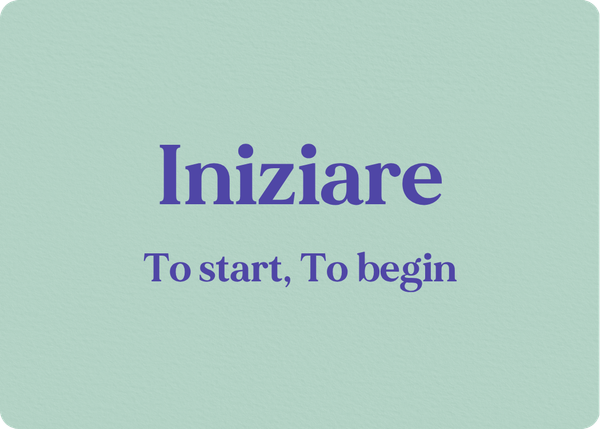What is Camminare?
Camminare is an Italian verb meaning "to walk", "to stroll", or "to go on foot". It belongs to the first conjugation (-ARE verbs) and follows regular conjugation patterns. This verb is useful for expressing movement, exercise, and pedestrian activities in Italian conversation and writing.
Key Features of Camminare:
- Type: Regular first conjugation verb (-ARE)
- Meaning: To walk, to stroll, to go on foot, to pace
- Auxiliary verb: Uses "avere" (to have) for conjugation in compound tenses
- Past participle: Camminato
Indicativo – Indicative Mood
Presente (Present Tense)
| Person | Conjugation |
|---|---|
| io | cammino |
| tu | cammini |
| lui/lei | cammina |
| noi | camminiamo |
| voi | camminate |
| loro | camminano |
Example:
Cammini troppo velocemente!
You walk too fast!
Passato Prossimo (Present Perfect)
| Person | Conjugation |
|---|---|
| io | ho camminato |
| tu | hai camminato |
| lui/lei | ha camminato |
| noi | abbiamo camminato |
| voi | avete camminato |
| loro | hanno camminato |
Example:
Maddalena ha camminato sotto la pioggia per due ore.
Maddalena walked in the rain for two hours.
Imperfetto (Imperfect)
| Person | Conjugation |
|---|---|
| io | camminavo |
| tu | camminavi |
| lui/lei | camminava |
| noi | camminavamo |
| voi | camminavate |
| loro | camminavano |
Example:
Camminavano in silenzio senza neanche guardarsi.
They were walking in silence without even looking at each other.
Trapassato Prossimo (Past Perfect)
| Person | Conjugation |
|---|---|
| io | avevo camminato |
| tu | avevi camminato |
| lui/lei | aveva camminato |
| noi | avevamo camminato |
| voi | avevate camminato |
| loro | avevano camminato |
Example:
Paola aveva camminato per ore prima di trovare la strada giusta.
Paola had walked for hours before finding the right road.
Passato Remoto (Simple Past)
| Person | Conjugation |
|---|---|
| io | camminai |
| tu | camminasti |
| lui/lei | camminò |
| noi | camminammo |
| voi | camminaste |
| loro | camminarono |
Example:
Camminarono per giorni attraverso il deserto.
They walked for days through the desert.
Trapassato Remoto (Past Anterior)
| Person | Conjugation |
|---|---|
| io | ebbi camminato |
| tu | avesti camminato |
| lui/lei | ebbe camminato |
| noi | avemmo camminato |
| voi | aveste camminato |
| loro | ebbero camminato |
Example:
Dopo che ebbe camminato per chilometri, finalmente vide la città.
After he had walked for kilometers, he finally saw the city.
Futuro Semplice (Simple Future)
| Person | Conjugation |
|---|---|
| io | camminerò |
| tu | camminerai |
| lui/lei | camminerà |
| noi | cammineremo |
| voi | camminerete |
| loro | cammineranno |
Example:
Camminerò fino a quando non sarò stanco.
I will walk until I get tired.
Futuro Anteriore (Future Perfect)
| Person | Conjugation |
|---|---|
| io | avrò camminato |
| tu | avrai camminato |
| lui/lei | avrà camminato |
| noi | avremo camminato |
| voi | avrete camminato |
| loro | avranno camminato |
Example:
Avremo camminato per chilometri quando raggiungeremo la vetta.
We’ll have walked for miles by the time we reach the summit.
Congiuntivo – Subjunctive Mood
Presente (Present Subjunctive)
| Person | Conjugation |
|---|---|
| che io | cammini |
| che tu | cammini |
| che lui/lei | cammini |
| che noi | camminiamo |
| che voi | camminiate |
| che loro | camminino |
Example:
È importante che tu cammini ogni giorno.
It's important that you walk every day.
Passato (Past Subjunctive)
| Person | Conjugation |
|---|---|
| che io | abbia camminato |
| che tu | abbia camminato |
| che lui/lei | abbia camminato |
| che noi | abbiamo camminato |
| che voi | abbiate camminato |
| che loro | abbiano camminato |
Example:
Penso che io abbia camminato abbastanza oggi.
I think I’ve walked enough for today.
Imperfetto (Imperfect Subjunctive)
| Person | Conjugation |
|---|---|
| che io | camminassi |
| che tu | camminassi |
| che lui/lei | camminasse |
| che noi | camminassimo |
| che voi | camminaste |
| che loro | camminassero |
Example:
Sembrava che voi camminaste senza meta.
It seemed you were walking aimlessly.
Trapassato (Past Perfect Subjunctive)
| Person | Conjugation |
|---|---|
| che io | avessi camminato |
| che tu | avessi camminato |
| che lui/lei | avesse camminato |
| che noi | avessimo camminato |
| che voi | aveste camminato |
| che loro | avessero camminato |
Example:
Sembrava che nessuno avesse camminato su quel sentiero.
It seemed no one had walked on that path.
Condizionale – Conditional Mood
Presente (Present Conditional)
| Person | Conjugation |
|---|---|
| io | camminerei |
| tu | cammineresti |
| lui/lei | camminerebbe |
| noi | cammineremmo |
| voi | camminereste |
| loro | camminerebbero |
Example:
Camminereste meglio con scarpe più comode.
You would walk better with more comfortable shoes.
Passato (Past Conditional)
| Person | Conjugation |
|---|---|
| io | avrei camminato |
| tu | avresti camminato |
| lui/lei | avrebbe camminato |
| noi | avremmo camminato |
| voi | avreste camminato |
| loro | avrebbero camminato |
Example:
Avrebbero camminato anche tutta la notte pur di arrivare in tempo da te!
They would have walked all night long just to arrive on time to see you!
Imperativo (Imperative)
| Person | Conjugation |
|---|---|
| (tu) | cammina |
| (lui/lei) | cammini |
| (noi) | camminiamo |
| (voi) | camminate |
| (loro) | camminino |
Example:
Cammina più velocemente, siamo in ritardo!
Walk faster, we're late!
Indefinite Moods
Infinito (Infinitive)
- Presente (Present): camminare (to walk)
- Passato (Past): avere camminato (to have walked)
Examples:
Mi piace camminare nei boschi in autunno.
I like walking in the woods in autumn.
Dopo aver(e) camminato tutto il giorno, era esausto.
After walking all day, he was exhausted.
Participio (Participle)
- Passato (Past): camminato (walked)
Example:
I ragazzi hanno camminato per tutto il quartiere.
The boys walked through the entire neighborhood.
Gerundio (Gerund)
- Presente (Present): camminando (walking)
- Passato (Past): avendo camminato (having walked)
Examples:
Camminando ogni giorno ti terrai in forma.
By walking every day, you will keep in shape.
Avendo camminato per ore, si fermò a riposare.
Having walked for hours, he stopped to rest.
The verb Camminare at a glance: Key tenses you need
| Present | Present Perfect | Imperfect | Present Subjunctive | Imperfect Subjunctive | Present Conditional |
|---|---|---|---|---|---|
| io cammino | io ho camminato | io camminavo | che io cammini | che io camminassi | io camminerei |
| tu cammini | tu hai camminato | tu camminavi | che tu cammini | che tu camminassi | tu cammineresti |
| lui/lei cammina | lui/lei ha camminato | lui/lei camminava | che lui/lei cammini | che lui/lei camminasse | lui/lei camminerebbe |
| noi camminiamo | noi abbiamo camminato | noi camminavamo | che noi camminiamo | che noi camminassimo | noi cammineremmo |
| voi camminate | voi avete camminato | voi camminavate | che voi camminiate | che voi camminaste | voi camminereste |
| loro camminano | loro hanno camminato | loro camminavano | che loro camminino | che loro camminassero | loro camminerebbero |
Conclusion
Mastering the conjugation of "camminare" is essential for expressing movement, exercise, and pedestrian activities in Italian. As a regular first conjugation verb, it follows standard patterns throughout all tenses.
Remember the key points:
- Uses "avere" as auxiliary verb in compound tenses
- Regular first conjugation verb (-ARE) with standard patterns throughout all tenses
- Past participle is "camminato"
- Essential for expressing walking, strolling, and pedestrian movement
- Featured in many useful expressions related to movement and behavior
Keep practicing with real sentences and contextual examples to master this Italian verb!





